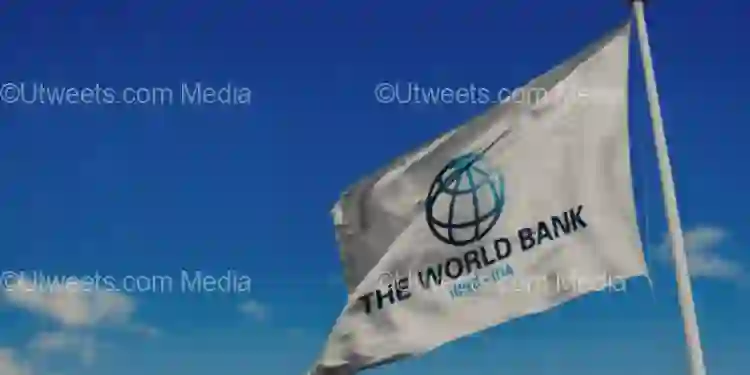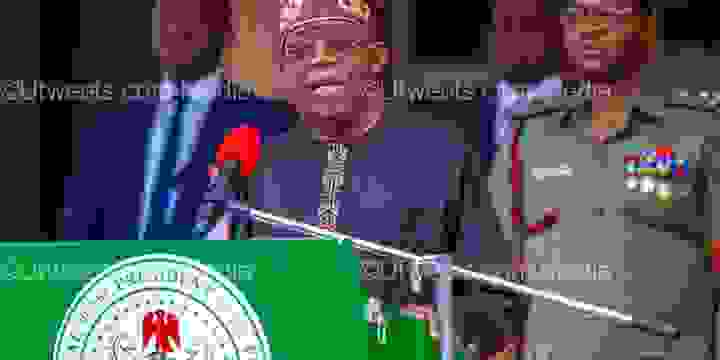Nigeria as well as other African countries are set to be beneficiaries of a $90 billion electricity funds backed by the from the World Bank and the African Development Bank. ...Tap To Read The Full Story Here | ..Tap To Read The Full Story Here...
The fund is part of the plan from the global financial institution to provide electricity to 300 million African population by the year 2023, according to a Bloomberg report.DO YOU WANT TO SEE THE VIDEO OF THIS CONTENT? Click Here To W.atch The Full .Video HE.RE: Don’t Forget to visit the website for more fresh and original updates. Thanks
Leading climate organizations including the Rockefeller Foundation, Global Alliance for People and Planet, and Sustainable Energy For All on Friday announced the launch for a new technical assistance facility.
This initiative, part of the Mission 300 program, aims to assess and support projects, helping them secure funding if they meet the program’s criteria.
Nigeria, an integral part of Mission 300, will also be a major beneficiary of the project through the Nigeria Distributed Access through Renewable Energy Scale-up (DARES project.
According to the World Bank, the project will benefit over 17.5 million Nigerians, or 20% of the country’s currently unserved population, while replacing over 250,000 polluting and expensive diesel generators.
Multiple Sources for Funding for the Project
Accordingly, the Rockefeller Foundation, in partnership with the Bezos Earth Fund and the Ikea Foundation, founded the Global Energy Alliance for People and Planet (GEAPP) in 2021.
Together, they are providing an initial $10 million through the World Bank to support 15 clean energy projects across 11 African countries, including Burkina Faso and Mozambique.
This initiative aims to advance clean-energy solutions, with a focus on technologies like mini-grids, according to a joint statement from the organizations.
“We’ve seen, frankly, stagnation in getting electricity to more Africans over the last 15 years. This is for us the defining climate and development challenge for the continent over the next 20 years,” Ashvin Dayal, who heads the Rockefeller Foundation’s power and climate program, told Bloomberg TV.
On their part, GEAPP said the fund aim to create a massive fund-raising and advocacy effort to elevate action and mobilize the resources required in order to help raise some of the funds.
“We need to make sure that we create bankable projects that deliver impact and commercially sound returns.
“We will launch a massive fund-raising and advocacy effort to elevate action and mobilize the resources required,” Woochong Um, GEAPP’s chief executive officer, said.
The aim is to split the $90 billion needed in funding equally between public funds, concessional and philanthropic finance and commercial commitments.
Possible sources include the International Monetary Fund’s Resilience and Sustainability Trust and re-channeled special drawing rights, which are reserve assets issued by the IMF to its members.
Under the program, countries will be encouraged to boost their access to funding by committing to reforms that encourage the roll out of green energy.
What you should know
Data from the external debt stock report of the Debt Management Office (DMO) shows that Nigeria owes the World Bank a total of $15.59 billion as of March 31, 2024.
Also, the World Bank may approve four loan projects totaling $2 billion for Nigeria this year.
Meanwhile, the Nigeria Distributed Access through Renewable Energy Scale-up Project, approved on December 14, 2023, has yet to be disbursed from its $750 million allocation.DO YOU WANT TO SEE THE VIDEO OF THIS CONTENT? Click Here To W.atch The Full .Video HE.RE: Don’t Forget to visit the website for more fresh and original updates. Thanks
This project is vital for addressing Nigeria’s electricity access deficit, with an ambitious goal to provide over 17.5 million Nigerians with improved access to electricity through distributed renewable energy solutions.…For More READ THE FULL STORY ▶



